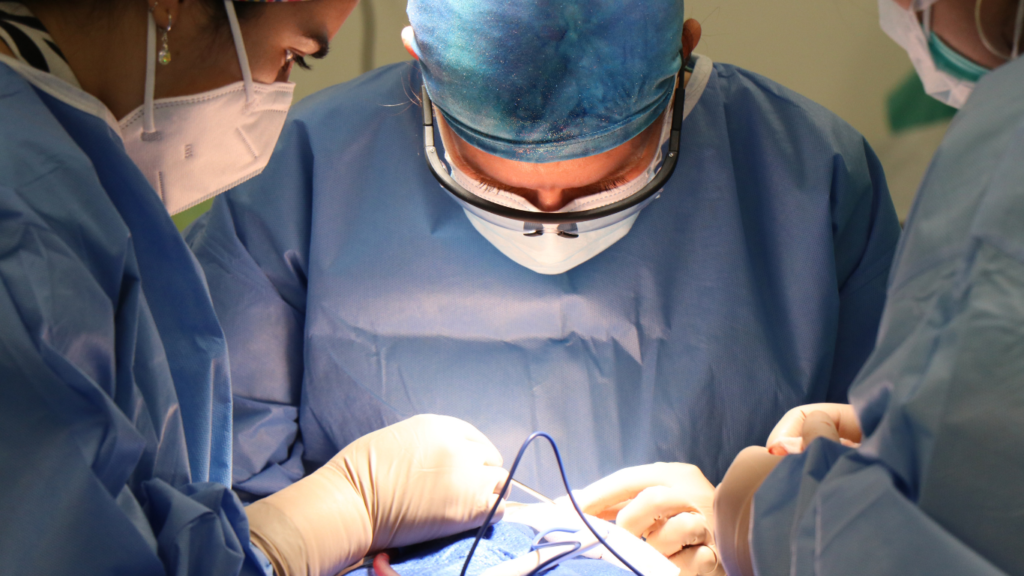The Connection Between Gastric Issues and Headaches: An In-Depth Exploration
Introduction
Headaches are a common complaint and can be caused by a variety of factors, including stress, dehydration, and dietary triggers. Interestingly, there is a growing body of evidence suggesting a link between gastrointestinal (GI) issues and headaches. This connection is rooted in the complex interplay between the gut and the brain, often referred to as the gut-brain axis. This article will delve into the mechanisms behind this relationship, the types of headaches associated with GI problems, and potential treatment strategies.
The Gut-Brain Axis: A Bidirectional Communication System
The gut-brain axis refers to the complex communication network that links the central nervous system (CNS) and the enteric nervous system (ENS) of the GI tract. This communication occurs via neural, hormonal, and immunological pathways. Key players in this system include the vagus nerve, neurotransmitters like serotonin, and immune system cytokines.
The gut microbiota, which comprises trillions of microorganisms living in the intestines, also plays a crucial role. These microbes can influence brain function and behavior through the production of metabolites and modulation of immune responses. Dysbiosis, or an imbalance in the gut microbiota, has been implicated in both gastrointestinal disorders and neuropsychiatric conditions, including headaches.
Mechanisms Linking GI Issues to Headaches
- Inflammation and Neurotransmitter Release:
- GI disorders often involve inflammation, which can trigger the release of cytokines and other inflammatory mediators. These substances can affect the CNS, potentially leading to headaches.
- Serotonin, a key neurotransmitter, is predominantly produced in the gut. Alterations in serotonin levels can impact both GI function and headache pathophysiology.
- Dehydration:
- Conditions like vomiting and diarrhea, common in various GI disorders, can lead to dehydration. Dehydration reduces blood volume, which can decrease blood flow to the brain and trigger headaches.
- Food Sensitivities and Allergies:
- Certain foods can provoke both GI symptoms and headaches. For instance, gluten intolerance (celiac disease) can cause gastrointestinal distress and has been associated with an increased prevalence of migraines.
- Medication Side Effects:
- Drugs used to treat GI conditions, such as proton pump inhibitors (PPIs) for GERD, can have side effects that include headaches. Understanding these side effects is crucial for managing patients holistically.
- Stress and Anxiety:
- The gut-brain axis is highly responsive to stress. Psychological stress can exacerbate GI conditions like irritable bowel syndrome (IBS) and can also trigger tension-type headaches and migraines.
- Hormonal Influences:
- Hormonal fluctuations, particularly those related to the menstrual cycle, can affect both GI function and headache frequency. Estrogen, for instance, influences serotonin levels, thereby impacting both the gut and brain.
Types of Headaches Associated with GI Issues
- Migraines:
- Migraines are severe headaches often accompanied by nausea, vomiting, and sensitivity to light and sound. Studies have shown that individuals with migraines are more likely to have GI disorders like IBS, GERD, and celiac disease.
- Tension-Type Headaches:
- These are the most common type of headache, characterized by a dull, aching sensation all over the head. Stress, a significant trigger for both tension-type headaches and GI symptoms, highlights the interconnectedness of these conditions.
- Cluster Headaches:
- These are less common but extremely painful headaches that occur in cyclical patterns or clusters. While the connection to GI issues is less well-documented, stress and circadian rhythm disruptions are potential links.
Diagnostic and Therapeutic Approaches
- Comprehensive Patient History:
- A thorough history taking should include questions about GI symptoms, dietary habits, medication use, and stress levels. Understanding the temporal relationship between headaches and GI symptoms can provide valuable diagnostic clues.
- Diagnostic Testing:
- Depending on the clinical presentation, diagnostic tests may include blood tests for celiac disease, endoscopy for GERD, and stool tests for infections or inflammatory markers.
- Dietary Modifications:
- Identifying and eliminating trigger foods can be beneficial. A diet low in fermentable oligosaccharides, disaccharides, monosaccharides, and polyols (FODMAPs) has shown promise in reducing symptoms of both IBS and migraines.
- Hydration:
- Ensuring adequate hydration is fundamental, especially in patients with conditions that cause vomiting or diarrhea.
- Medications:
- Tailored pharmacological treatment is essential. For example, triptans are often used for migraines, while PPIs are used for GERD. Awareness of potential side effects is crucial for holistic patient care.
- Stress Management:
- Psychological interventions such as cognitive-behavioral therapy (CBT), mindfulness, and relaxation techniques can be effective in managing both GI symptoms and headaches.
- Probiotics and Gut Health:
- Emerging evidence suggests that probiotics and prebiotics can positively influence gut microbiota and potentially reduce the frequency and severity of headaches.
Conclusion
The link between gastric issues and headaches underscores the importance of a multidisciplinary approach to diagnosis and treatment. Understanding the gut-brain axis and its role in both gastrointestinal and neurological health can lead to more effective and comprehensive patient care. Further research is needed to fully elucidate the mechanisms behind this connection and to develop targeted therapies that address both GI and headache symptoms simultaneously.
By recognizing and addressing the interplay between the gut and the brain, healthcare providers can improve the quality of life for patients suffering from these often debilitating conditions.




